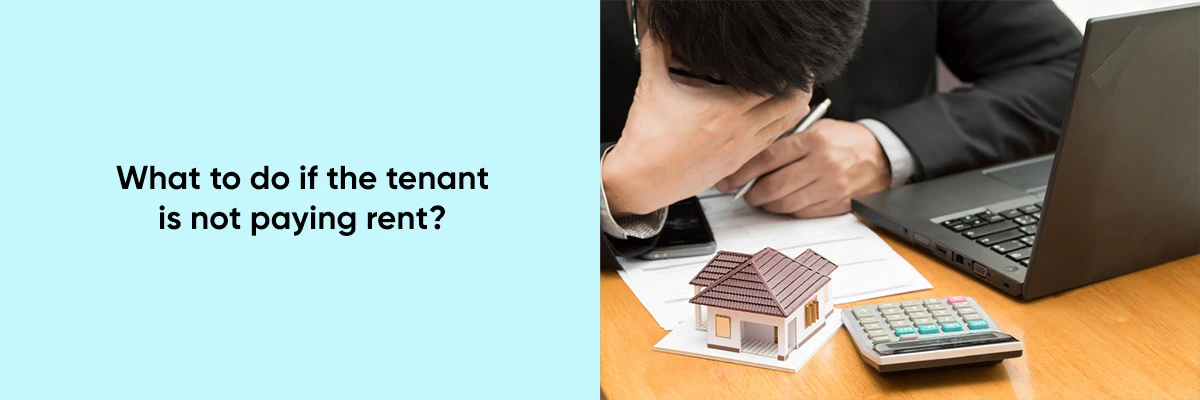If you are a landlord or a property manager and you face a situation where your tenant is not paying rent, this can be frustrating and stressful. Don’t worry! You can claim the money with HUD special claims. However, there are some document checklists for processing HUD claims that you should keep in mind. Also, it is important to approach this issue calmly and professionally to find a resolution.
In this blog, we will discuss the solutions and the steps that you can take to address the situation of the tenant not paying rent.



How Do You Handle A Nonpaying Tenant?
1. Review the Lease Agreement:
The first thing that you should do to address a tenant not paying rent is to review the lease agreement. This document is your legal foundation and outlines payment terms, due dates, late fee treatments, etc.
If it is mentioned in your lease agreement document and your local laws allow then you can deduct the unpaid rent amount from the Security Deposit.
2. Open Communication Channels:
Having open and honest communication with the tenants will help you resolve the problem. When you notice a rent delinquency, reach out to your tenant promptly. You should politely inquire about the missed payment and offer assistance or flexibility if applicable. Remember, tenants may have valid reasons for their financial difficulties.
3. Send a Formal Notice:
If things still don’t get sorted even after having open communication, then you can send the tenant a formal notice. The US legal system recognizes various types of notices, depending on the situation:
- Pay or Quit Notice: The Pay or Quit Notice is the first step in the eviction process in many states. In this situation, the tenant must either pay the overdue rent or vacate the property within a given period of time.
- Cure or Quit Notice: In some states, a tenant must submit a cure or quit notice if he has violated other lease terms. During this period, they have the option of correcting the violation or vacating the premises.
- Notice to Terminate Tenancy: When the lease ends, you may have to provide sufficient notice to end the tenancy and begin eviction procedures.
4. Document Everything:
You should keep meticulous records of all communications, payments, and notices sent to the tenant. If the situation escalates and legal action is required, these records will be invaluable. Keep your records according to US laws regarding notice and record-keeping.
5. Consult an Attorney:
You should consult with an attorney specializing in landlord-tenant law if your tenant is uncooperative or the situation becomes complicated. They can guarantee that you are following the right legal procedures.
6. Filing for Eviction:
When all else fails, and the tenant is not paying rent or refuses to vacate the property, you may need to pursue eviction through the US legal system. The eviction process varies by state, but it’s essential to follow the specific procedures outlined in your jurisdiction.
What You Can Do To Prevent This Situation?
Preventing the situation of tenants not paying rent is crucial for landlords to maintain financial stability and a positive landlord-tenant relationship. Here are some steps you can take to minimize the risk of rent payment issues:
1. Thorough Tenant Screening:
Ensure that prospective tenants have a good rental history, a good credit rating, and references. You can use this information to identify tenants who pay their rent on time.
2. Clear Lease Agreements:
Ensure that your lease agreement clearly outlines the terms and conditions of the rental, including the rent amount, due date, and late charges.
3. Verify Income:
To ensure tenants can afford the rent, you need to ask them for proof of their income. Tenants are usually expected to earn at least three times their monthly rent in order to qualify for a lease.
4. Security Deposits:
To prevent potential damage or unpaid rent, collect a security deposit from tenants. Security deposits are subject to local laws, so make sure you are aware of them and follow them.
5. Set Up a Consistent Payment System:
Tenants should be encouraged to set up automatic rent payments like ACH payments. By doing this, the likelihood of missing a payment due to forgetfulness is reduced. You can offer tenants various payment options, such as online payments, cheques, and money orders, to make it easier for them to pay on time.
6. Open Communication:
Maintain an open line of communication with your tenants. Whenever they experience financial hardships, encourage them to reach out. Being understanding and willing to work with tenants can prevent problems from escalating.
7. Establish a Tenant Selection Criteria:
Establish clear criteria for tenant selection and adhere to them consistently. This can help you avoid renting to tenants who have a history of payment issues.
8. Rental Insurance:
Encourage or require tenants to obtain renters’ insurance, which can cover their belongings and provide additional financial security.
Remember that while these steps can significantly reduce the risk of tenants not paying rent, unexpected situations can still occur. Being prepared and knowing how to handle such situations, as discussed in the previous responses, is also essential for landlords.
Conclusion:
Dealing with a tenant not paying rent can be a daunting experience, but it’s important to navigate it while remaining in compliance with US laws. Always begin with open communication, review the lease agreement, and follow the proper legal channels when necessary. With the right approach and adherence to legal requirements, you can address the issue of a non-paying tenant while protecting your rights as a landlord. Remember, every state has its own regulations, so consult with local legal experts and authorities to ensure full compliance. Dealing with a tenant not paying rent may be challenging, but it’s a situation you can handle effectively and within the bounds of the law.


